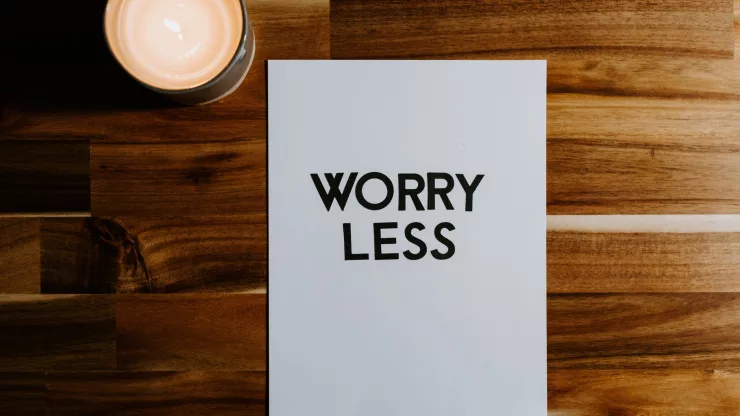Depression is a mental health disorder that affects millions of people worldwide. It can make you feel hopeless, helpless, and isolated.
However, there are ways to cope with depression and take charge of your mental health.
This article will explore coping mechanisms, self-care strategies, support systems, overcoming stigma, and moving forward with hope and resilience.
Coping Mechanisms: Finding Your Way through the Fog
Coping mechanisms are strategies that help you manage the symptoms of depression. Some coping mechanisms may work better for you than others, and it’s essential to find what works best for you.
Here are some coping mechanisms you can try:
| Coping Mechanism | Description |
|---|---|
| Exercise | Physical activity can help improve mood and reduce symptoms of depression. |
| Mindfulness | Mindfulness meditation can help you focus on the present moment and reduce negative thoughts. |
| Creative expression | Engaging in creative activities like painting, writing, or playing music can help you express your emotions and reduce stress. |
| Social support | Spending time with friends and family can help you feel connected and supported. |
Self-Care Strategies: Taking Charge of Your Mental Health
Self-care is essential for managing depression. It involves taking care of your physical, emotional, and mental health. Here are some self-care strategies you can try:
| Self-Care Strategy | Description |
|---|---|
| Sleep | Getting enough sleep can help improve mood and reduce symptoms of depression. |
| Nutrition | Eating a balanced diet can help improve your overall health and reduce symptoms of depression. |
| Relaxation | Engaging in relaxing activities like taking a bath or reading a book can help reduce stress and improve mood. |
| Positive self-talk | Talking to yourself in a positive and encouraging way can help boost self-esteem and reduce negative thoughts. |
Support Systems: Building a Network of Allies
Support systems are essential for managing depression. They can provide emotional support, practical assistance, and a sense of community.
Here are some support systems you can build:
| Support System | Description |
|---|---|
| Friends and family | Spending time with loved ones can provide emotional support and a sense of belonging. |
| Support groups | Joining a support group can provide a sense of community and a safe space to share experiences. |
| Therapy | Seeing a therapist can provide professional support and guidance for managing depression. |
Overcoming Stigma: Breaking Down Barriers to Treatment
Stigma surrounding mental health can prevent people from seeking treatment for depression. Overcoming stigma involves challenging negative stereotypes and educating others about mental health.
Here are some ways to overcome stigma:
| Overcoming Stigma Strategy | Description |
|---|---|
| Education | Educating yourself and others about mental health can help break down stereotypes and reduce stigma. |
| Advocacy | Advocating for mental health awareness and policy changes can help reduce stigma and improve access to treatment. |
| Self-acceptance | Accepting yourself and your mental health condition can help reduce self-stigma and improve self-esteem. |
Moving Forward: Embracing Hope and Resilience
Managing depression is a journey that requires hope and resilience. It’s essential to remember that recovery is possible and that you can overcome depression.
Here are some ways to embrace hope and resilience:
| Moving Forward Strategy | Description |
|---|---|
| Goal-setting | Setting small, achievable goals can help build confidence and a sense of accomplishment. |
| Gratitude | Practicing gratitude can help shift focus from negative thoughts to positive ones. |
| Mindset | Adopting a growth mindset can help you view challenges as opportunities for growth and learning. |
Depression is a complex mental health disorder that affects many people worldwide. Coping with depression can be challenging, but it’s essential to remember that recovery is possible.
By using coping mechanisms, self-care strategies, building support systems, overcoming stigma, and embracing hope and resilience, you can manage depression and improve your mental health.
Remember that managing depression is a journey, and it’s essential to be patient and kind to yourself. Take small steps towards recovery and celebrate your accomplishments along the way.
With the right tools and support, you can overcome depression and improve your mental health.
FAQ
What are the symptoms of depression?
Symptoms of depression include persistent feelings of sadness, hopelessness, and worthlessness, loss of interest in activities, changes in appetite and sleep patterns, fatigue, difficulty concentrating, and thoughts of suicide or self-harm.
When should I seek treatment for depression?
If you experience symptoms of depression that last for more than two weeks, it’s essential to seek treatment. Treatment may involve therapy, medication, or a combination of both.
What are some coping mechanisms for managing depression?
Coping mechanisms for managing depression include exercise, mindfulness, creative expression, and social support.
How can self-care help manage depression?
Self-care can help manage depression by improving overall physical and mental health. Self-care strategies include getting enough sleep, eating a balanced diet, engaging in relaxation activities, and practicing positive self-talk.
How can I build a support system for managing depression?
Building a support system for managing depression can involve spending time with friends and family, joining a support group, or seeing a therapist.
How can I overcome stigma surrounding mental health?
You can overcome stigma surrounding mental health by educating yourself and others about mental health, advocating for mental health awareness and policy changes, and accepting yourself and your mental health condition.

With a deep passion for personal development, Ben has dedicated his career to inspiring and guiding others on their journey towards self-improvement.
His love for learning and sharing knowledge about personal growth strategies, mindfulness, and goal-setting principles has led him to create My Virtual Life Coach.
Contact Ben at [email protected] for assistance.




